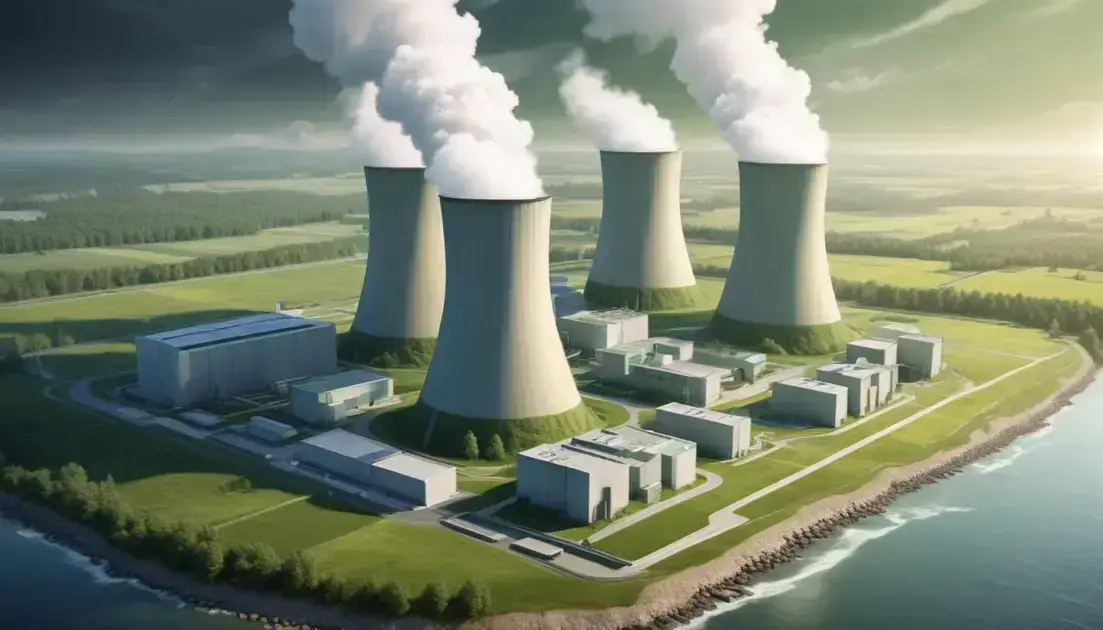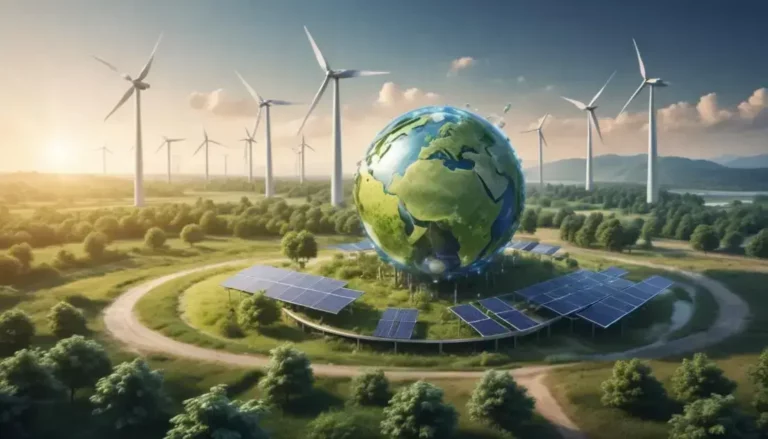Tech Giants Back Nuclear Power for a Cleaner Future
Nuclear energy is a crucial component in achieving sustainable development, providing a reliable, low-carbon power source that supports climate goals and complements renewable energy integration.
In an exciting move towards sustainability, nuclear energy is gaining traction as a key player in the clean energy transition. How will this affect our future?
Industry leaders unite for nuclear expansion
Recent developments indicate that industry leaders are collaborating to promote nuclear energy as a key component in the global move towards cleaner energy sources. This collective effort involves major technology firms, energy corporations, and government entities aligning their goals to enhance nuclear infrastructure and advancement. With rising concerns about climate change, the urgency to transition from fossil fuels has never been more critical.
One of the significant advantages of nuclear power is its ability to provide a stable and substantial energy output without greenhouse gas emissions during operation. As fossil fuel reserves dwindle, many view nuclear energy as a sustainable alternative that offers reliability. Investments in new nuclear technologies, such as small modular reactors (SMRs), are gaining traction, promising to make nuclear power safer and more efficient.
Furthermore, this unification of industry leaders aims to address public concerns about nuclear safety and waste management. By fostering transparent dialogue and advancing regulatory frameworks, they seek to gain public trust and ensure that nuclear energy can play a vital role in our future energy landscape. Collaborative research initiatives and public-private partnerships are essential in overcoming existing barriers and driving innovative solutions in the nuclear sector.
The pivotal role of nuclear power in sustainable development
Nuclear power plays a pivotal role in sustainable development by providing a low-carbon energy source essential for combating climate change. With a growing demand for energy, countries are increasingly turning to nuclear energy as a viable solution to achieve their climate goals. Unlike fossil fuels, nuclear energy generates power with minimal greenhouse gas emissions, making it a cleaner alternative.
The reliability of nuclear power plants is another significant advantage. They can operate continuously for long periods, producing a consistent energy output. This stability is crucial for integrating renewable energy sources, such as solar and wind, which can be intermittent. By complementing these renewables, nuclear energy helps maintain a balanced energy grid.
Moreover, advancements in nuclear technology, such as next-generation reactors, are enhancing safety and efficiency, further solidifying nuclear power’s role in the energy transition. These innovations aim to reduce waste and improve performance, addressing some public concerns related to nuclear energy.
Collaboration between governments, private sector players, and research institutions is vital in promoting nuclear power as an essential component of a sustainable energy future. By investing in nuclear technology and infrastructure, we can ensure a more resilient energy landscape that meets the needs of a growing global population.
The Future of Nuclear Energy
Nuclear energy has the potential to be a game changer in our quest for sustainable development. By providing a reliable and low-carbon energy source, it can help us meet our growing energy needs while combating climate change.
As technology advances and safety concerns are addressed, nuclear power can play a key role alongside renewable resources like wind and solar energy. This combination will create a more stable and clean energy future.
It is important for governments, companies, and communities to work together to promote nuclear energy. Investments in research and infrastructure will pave the way for a brighter, greener tomorrow.
By embracing nuclear power, we can take a significant step toward achieving a sustainable energy landscape for generations to come.
People also ask
What role does nuclear energy play in combating climate change?
Nuclear energy provides a low-carbon energy source, significantly reducing greenhouse gas emissions compared to fossil fuels, making it an important tool against climate change.
How does nuclear power integrate with renewable energy sources?
Nuclear power can work alongside renewable sources like solar and wind by providing consistent energy output, helping to stabilize the energy grid.
What advancements are being made in nuclear technology?
Next-generation reactors and innovations in waste management are improving safety and efficiency, addressing public concerns about nuclear energy.
Why is collaboration important for the future of nuclear energy?
Collaboration between governments, private companies, and research institutions is essential to promote nuclear energy and advance necessary technology and infrastructure.
What are the safety concerns associated with nuclear power?
Safety concerns include potential accidents and waste management issues, but advancements in technology are addressing these challenges to make nuclear energy safer.
How can nuclear energy contribute to a sustainable energy future?
By providing a reliable, low-emission energy source, nuclear energy can help meet global energy demands while supporting climate goals and integrating renewable energy.





